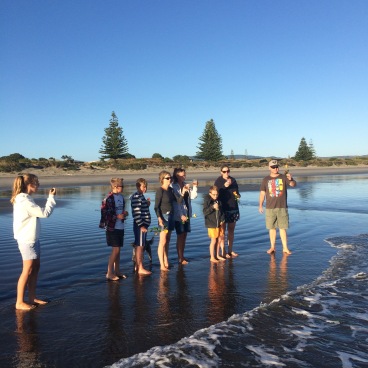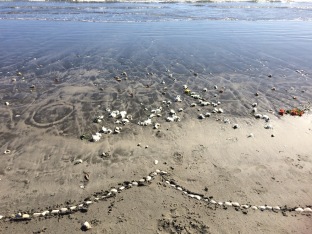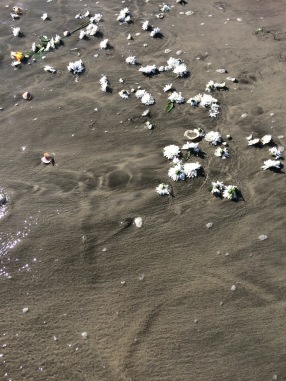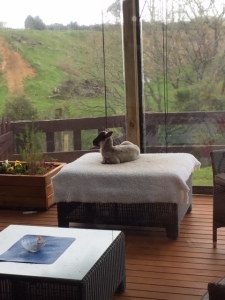If you think emigrating will be hard, multiply that by 10. Every time I packed a box, a small piece of regret slipped in. Every time I had to part with something that I kept only for sentimental reasons, I parted with a piece of myself.
Although I have lived in English-speaking countries, I’ve made some embarrassing mistakes. Our language is different everywhere you go. In Australia I was quickly told that I couldn’t say I’d been rooting around in shops as ‘rooting’ had a very different connotation there. My flip-flops became thongs, which caused some confusion on returning to South Africa where thongs are skimpy undies. In New Zealand flip-flops are called jandalls. Gym shoes were once plimsolls, then they became trainers. In South Africa they were takkies and in Australia they were runners. Swimsuits changed from bathing costumes to cozzies to bathers, and now my New Zealand children refer to them as their togs. Felt tips turned into kokies and then to texters. Blue tack became presstick before returning to blue tack. Bed linen became Manchester.
Before leaving South Africa I bought some pretty bed linen for our queen-size bed. This was packed in the container with the rest of our belongings. When Vaughn arrived in Australia he bought a new bed for our immediate use, and we borrowed sheets and a duvet cover from his mum. But when our container arrived, with our old bed and all our linen (Manchester!), I found nothing fitted. There does not seem to be an international standard for ‘Queen-size’. The Australian bed is longer but narrower than the South African counterpart.
I also bought matching curtains in South Africa which mostly ended up being given to the op-shop because we later discovered Australian houses were sold or rented with curtains or blinds. Also the curtain fabric is different. There is a rubberised backing that acts as insulation, so my natural cotton curtains were just not suitable.
We could have saved ourselves some much-needed money if we had brought a stash of multi plugs and some adapters. Changing all the plugs on all the appliances worked out at several hundred dollars, and had we thought in advance, we could have used the multi-plugs plugged into an international adapter and changed one or two each month, as we could afford it.
Some of our appliances did not travel well. We elected not to bring our aging TV, but we did bring a washing machine that gave up the ghost shortly after being re-installed in our Australian home. It wasn’t cost effective to repair it as the make was not available in Australia. I should have checked the internet for available brands and costs of new appliances before filling up the container with things that could not be repaired.
Most people can expect their standard of living to drop when they emigrate, and we were no exception. I was almost looking forward to it, but in my naivety I thought it would be good for us – a refreshing challenge. What I didn’t expect was the feeling of deprivation when I couldn’t afford a good cup of coffee, never mind a jar of half-decent face cream. All the simple luxuries of life suddenly disappeared. When you’re feeling homesick and heartsore those things seem to take on greater importance.
I mentally beat myself up when forced to admit to myself that small luxuries really do cheer a girl up. I remember when I made one of my penniless forays back to England with the children many years earlier, my aunt gave me some money with the instruction to buy something special for myself. I bought a packet of earl grey tea, a jar of Helleman’s mayonnaise and a pair of frilly knickers. I felt unbelievably decadent and uplifted, which pleased my aunt greatly.
When we left South Africa, I regretted not buying more local craft, particularly objets being sold illegally beside the road, which doesn’t have a middle-man mark-up. The proceeds go to the artists themselves. One hopes. The country offers a wealth of beautiful original art work that is so distinctly African. Since leaving the country I’ve felt the need to have an ‘African’ room with brightly painted walls and lots of orange cushions and African prints, the only drawback being that the beaded dolls, the wooden figurines and the clay pots do require the occasional good dust to look their gaudiest best.
But at the end of the day, it’s not ‘things’ that matter. It’s people, especially family. And although I’ve been blessed with many lovely things and had many wonderful adventures, the only thing that would have been on my bucket list, if I’d made one, would have been spending time with my family.
















